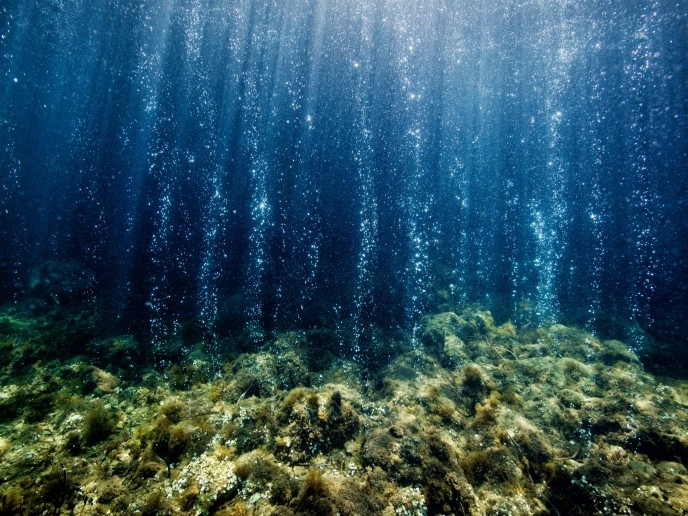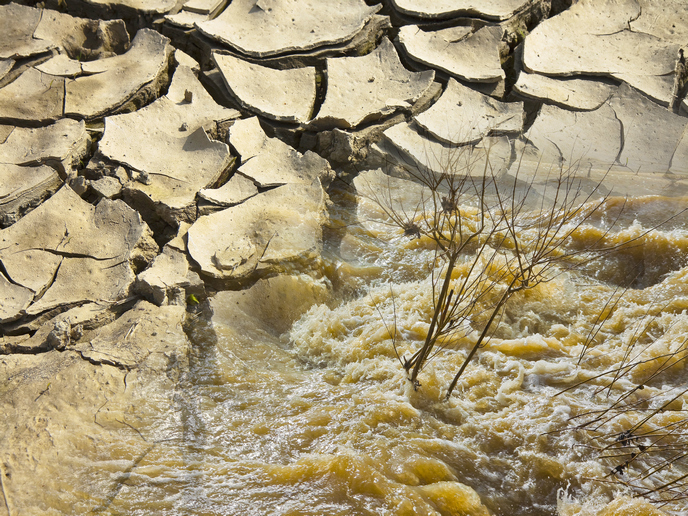Natural laboratory reveals effects of ocean acidification on marine ecosystems
Ocean acidification (OA) and global warming are threatening the continuing existence of reef ecosystems around the world. The OA(opens in new window) phenomenon involves a change in seawater chemistry due to the uptake of excess CO2 from human activities by the ocean, and a concomitant decline in seawater pH. The ocean absorbs the excess atmospheric CO2 and plays a key role in regulating the climate. Hence, OA is predicted to have a profound impact on marine ecosystems: carbonate ions are an essential substrate for the biomineralisation of shells and skeletons of many marine organisms, including phytoplankton, corals and fish. However, understanding of the ecological consequences of OA for marine biodiversity and ecosystem function is limited by knowledge gaps on whole-community responses in natural acidified ecosystems.
Ability of species to adapt
The EU-funded Future4Oceans project addressed this need by pooling a consortium of European and American experts in marine ecology, genomics, biogeochemistry and communication. “The initiative sought a clearer understanding of the functional biodiversity loss and the potential of adaptation of a coral to OA using natural CO2 vents along the coast of the island of Ischia, off the coast of Naples, Italy,” says Marie Skłodowska-Curie research fellow(opens in new window), Nuria Teixido. Scattered throughout the ocean are sites where CO2-rich water bubbles up from volcanic vents at the sea floor, acidifying the local seawater and affecting the surrounding ecosystems. “These naturally acidified systems are an ideal natural laboratory for examining whole-community responses and a powerful field system to test the speed and extent of species adaptation to OA,” Teixido explains.
Understanding global changes
The researchers' first objective was to identify emergent effects of OA on coastal marine ecosystems and their functioning, using novel functional-based trait approaches. Their second objective was to define the role of adaptation of the coral Astroides calycularis(opens in new window) in determining responses to OA, using next-generation sequencing technology. Future4Oceans conducted a novel functional diversity analysis of marine communities at the natural CO2 vents, to link change in functional composition and diversity to OA. “This is critical to better understanding the generalities of the vulnerability of marine benthic communities under ongoing and predicted global environmental changes,” notes Teixido.
Improved predictions
Scientists used transcriptome techniques to generate the first transcriptome assembly for the coral A. calycularis, to reveal genetic differentiation among local populations. A. calycularis is a Mediterranean endemic scleractinian coral, also known as stony or hard coral. This warm-water species is considered an important model system for investigating adaptation to environmental change. Transcriptome analyses showed the genetic distinctness of the populations and strong differentiation in gene functions, thereby highlighting the potential for vulnerable taxa such as scleractinian corals to acclimatise and adapt to low and variable pH. “Overall, the results of Future4Oceans will contribute to improving predictions on the impacts of climate for the oceans and their ecosystems and the critical services they provide to people,” Teixido points out. The project also organised science communication and education activities, holding public screenings of virtual reality films at museums and research centres as part of a ‘science week’. Teixido concludes: “The audience discovered first-hand these exceptional natural vent sites. They greatly appreciated the high technological quality of the product, the science behind it, and the opportunity to learn about the value of our ocean.”







